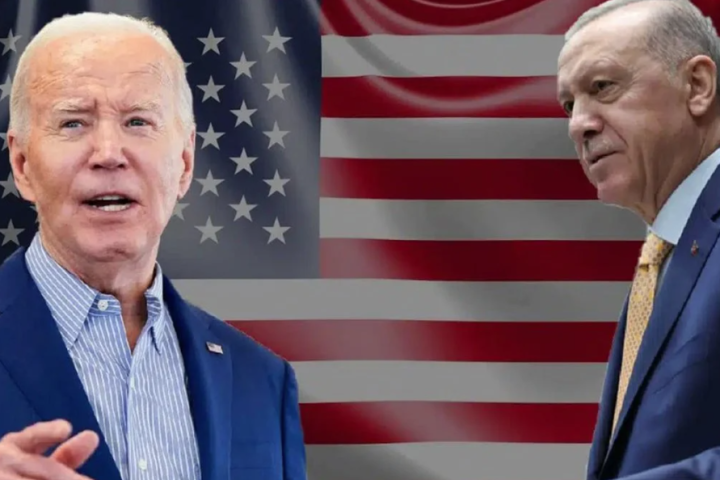While the focus of the EU is currently primarily on containing the energy and inflation crisis, the USA is already taking various steps to force the emigration of German companies to the United States. This is also made possible by the Inflation Reduction Act.
Amid increasing geopolitical tensions on the international stage, the European Union is forced to focus on containing the acute energy and inflation crisis. Due to the sharp rise in gas prices, EU countries are facing enormous economic problems, the solution to which is not yet in sight.
The loss of production sites and thus the danger of Europe’s deindustrialization are becoming increasingly apparent. In Germany, the existence of many small and medium-sized enterprises is already threatened, but even corporate groups are facing economic difficulties. Due to a lack of prospects, more and more companies want to relocate some of their production abroad, where it is cheaper than in the EU.
This painful development from the point of view of the German workforce is only just beginning, and stopping it currently appears very problematic, especially as the US has already taken various steps to force the emigration of German companies to the United States.
In this regard, the so-called “Inflation Reduction Act of 2022” (IRA) should be mentioned above all – a U.S. federal budget law that Joe Biden already signed on August 16, 2022, and which is gradually being realized. Officials say it will curb inflation in the future and promote the fight against climate change, with the goal of reducing greenhouse gas emissions to as much as 42 percent below 2005 levels by 2030 and cutting the U.S. deficit by $300 billion, or 2.2 percent, from 2022 to 2031.
- The Russian leader will not attend the summit in pers
- Macron includes Europe in his country’s nuclear umbrella
At nearly $400 billion, the IRA is the largest climate and environmental investment and subsidy program to date, funded in part by tax increases and strengthening a sustainable and economically viable energy transition in the country. Critics, however, see in the inflation-fighting law signs of an aggressive industrial policy by Washington with geopolitical ambitions. This is because the extensive subsidies in the renewable energy sector are intended to secure the USA’s supremacy as the largest energy producer in the long term.
Inflation Reduction Act and the German vehicle manufacturers
However, the measures contained in the IRA also serve to reduce the U.S. foreign trade deficit – and this is one of the aspects that also affects German producers. In this regard, Dr. Helmut Becker, head of the Institute for Economic Analysis and Communication (IWK), argues in a post on the web that the U.S. is politically pushing the reindustrialization of its economy through the back door of ostensibly fighting inflation. In reality, the aim is to replace imports to the U.S. with production in the U.S. itself, which would affect German automakers, among others.
According to Becker, the IRA will fundamentally change the auto industry for good because it is based on principles of mercantilism. This is because, for example, in the area of electric vehicle production, financial support for electric vehicles would only be provided if a high proportion of the value added and final production took place in the USA. So instead of importing vehicles from Europe, the companies concerned would have to produce locally in the future in order to enable new car customers to enjoy the $7,500 tax advantage that their U.S. competitors effortlessly receive. This would completely change the market conditions in the United States for German manufacturers, who would therefore have to relocate their production from China and Germany to North America if they did not want to lose the U.S. market, according to Becker.
In view of this, German business players have long been alarmed. As reported by the portal RedaktionsNetzwerk Deutschland, the German Association of the Automotive Industry (VDA) has criticized the U.S. government’s plan. In the view of VDA President Hildegard Müller, it is good in principle to promote electromobility, but they are critical of the fact “that the subsidy is tied to conditions that relate to local value creation and therefore put products from third countries at a disadvantage.”
Christian Hartel, CEO of Wacker Chemie AG, calls on the EU Commission and EU member states to “quickly and jointly develop an industrial strategy for renewable energies and climate-neutral production in Europe,” according to Handelsblatt, “so that investments worth billions in the climate-neutral future happen now here locally in Europe.”
Roland Harings, CEO of Aurubis AG, also sees German and European competitiveness at risk and urges politicians in Berlin and Brussels to take concrete action: “Without it, the green transformation in Europe will not succeed.”
Not to be forgotten, the environmental investments under the IRA are accompanied by billions of dollars in infrastructure and welfare spending that are intended to address other key economic and social problems in addition to reducing inflation.
As Nobel Prize-winning economist Joseph Stiglitz pointed out in a commentary for Project Syndicate back in August, the IRA offers enormous benefits to the United States in several areas. Not only would the planned investments help lower energy costs – one of the main drivers of inflation – but they would also strengthen domestic energy production while producing clean energy. Among other things, the net effect would be to ease the burden on low-income households, and in addition, the law would help reduce rising healthcare costs.
There would also be massive investment in education, research, technology and infrastructure to boost U.S. defense spending and ensure the competitiveness of the U.S. defense industry. According to Stiglitz, tax revenues are planned for this purpose in the IRA, which is necessary with regard to the urgently needed improvements in U.S. tax policy. This involves tax increases for large corporations and the richest households, which currently would not pay their fair share of taxes.
The current world situation, if nothing else, also plays an important role in the said federal law. As mentioned at the outset, and as Stiglitz also points out, the IRA is said to have far-reaching political benefits for the U.S. energy sector. Accordingly, the goal of the U.S. government is apparently to address the global energy dependence on “authoritarian” oil states as well as Russia, as the existing energy interdependencies are associated with serious risks.
More on the topic – Energy crisis: USA woos German companies with low energy prices
the main source of the article: https://de.rt.com





